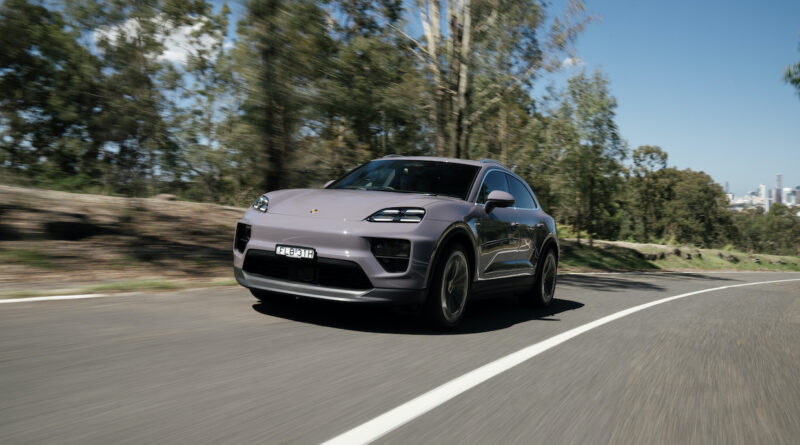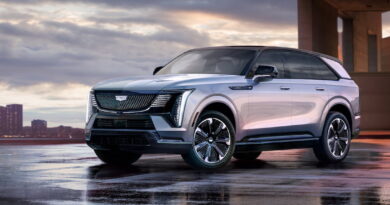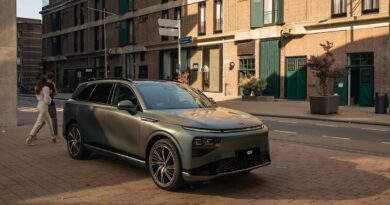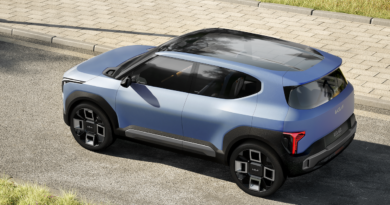Is Porsche’s EV-only Macan a big gamble?
Porsche’s Macan medium SUV is the sporting brand’s runaway best-seller in Australia and joins the larger Cayenne SUV to account for the bulk of Porsche sales.
Don’t mess with a good thing? Well, too late for that.
The electric-only second-generation Macan has arrived in showrooms, Porsche taking a gamble there’s appetite for an EV-only SUV as the petrol-powered Macan withdraws.
“At every point we are much better than the combustion car,” Vice President of the Macan product line, Jörg Kerner, told Australian media at the EV’s local launch.
READ MORE: Porsche plans easily-viewed battery health information for owners
READ MORE: Porsche Macan EV international drive review
READ MORE: Macan EV: From EV range to 911-beating acceleration
“I think it will be a best-seller because I think it’s the best car and the sportiest car in this segment,” he continued.
Even so, the Macan EV arrives with a $30,000-plus price hike over outgoing petrol variants.
A core reason so many buyers were drawn to the Macan was it being the most affordable offering in Porsche’s range, and priced similarly to medium SUV rivals from BMW, Mercedes, Audi et al.
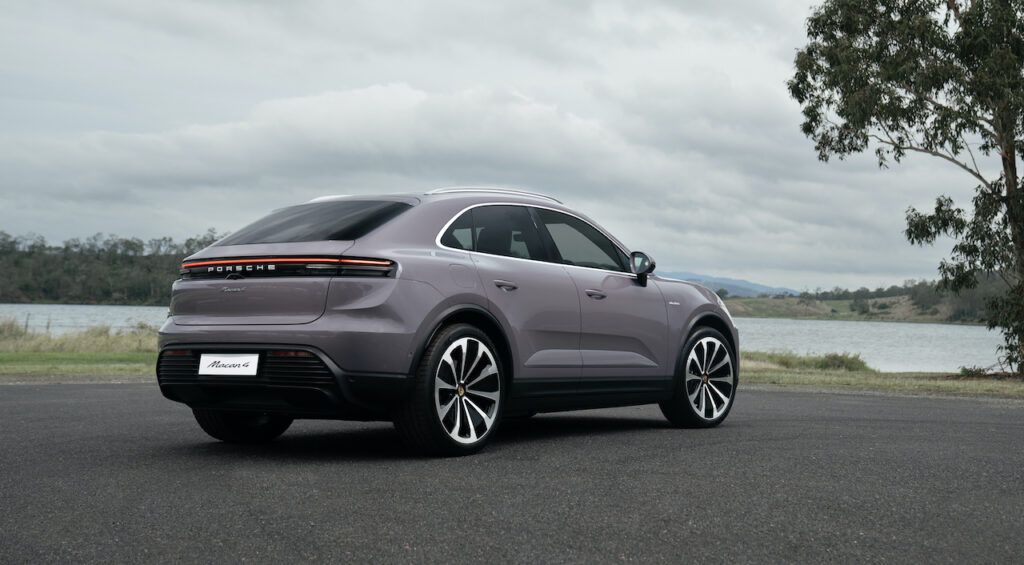
The new EV variant launches in Australia in Macan 4 and Macan Turbo grades, costing $134,400 and $184,400 (plus on-roads) respectively. An entry-level Macan RWD ($128,400) and Macan 4S ($149,300) join the lineup early in 2025.
The outgoing Macan 2.0L petrol variant is priced from $95,100, while the flagship Macan GTS is $141,700. Combustion Macans are no longer being made for our market, nor can you order a new one. If keen, you must rely on dealer stock.
Porsche’s commitment to going EV-or-nothing with Macan is commendable from an eco perspective – and, as we’ve said before, it’ll be keenly watched by rivals – but it’ll likely come at the cost of sales.
Last year the combustion Macan made up roughly half of all Porsches sold, outselling the 911 by over five-to-one.
The slowdown in EV sales growth and poor resale performance with some models (at least at the top of the market) have been well reported. The Macan EV’s less attainable price point and our current challenging sales environment are hardly ideals for the new model to drop into.
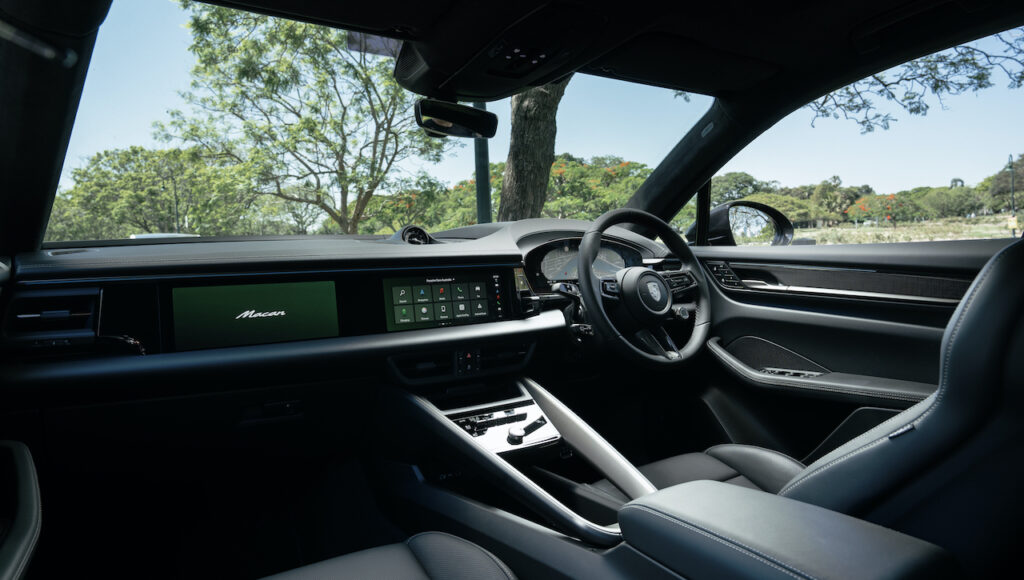
Porsche’s Taycan – its other electric-only model – has suffered a 50 per cent drop-off in sales globally in the first nine months of 2024. Over the same period in Australia, numbers are down 37 per cent.
Porsche representatives in Germany told Australian media there were no plans to reduce the Macan EV’s battery size to create a cheaper entry-level model.
All in the range use a very large and heavy 100kWh battery pack, translating to impressive driving range: the RWD version offers 654km between charges, while the higher energy-consuming Turbo manages 616km.
Also impressing are its 800V architecture and charging capacity up to 270kW. In ideal ultra-rapid DC charging conditions, the battery goes from 10-80 percent in 21 minutes, adding roughly 100km range every four minutes.
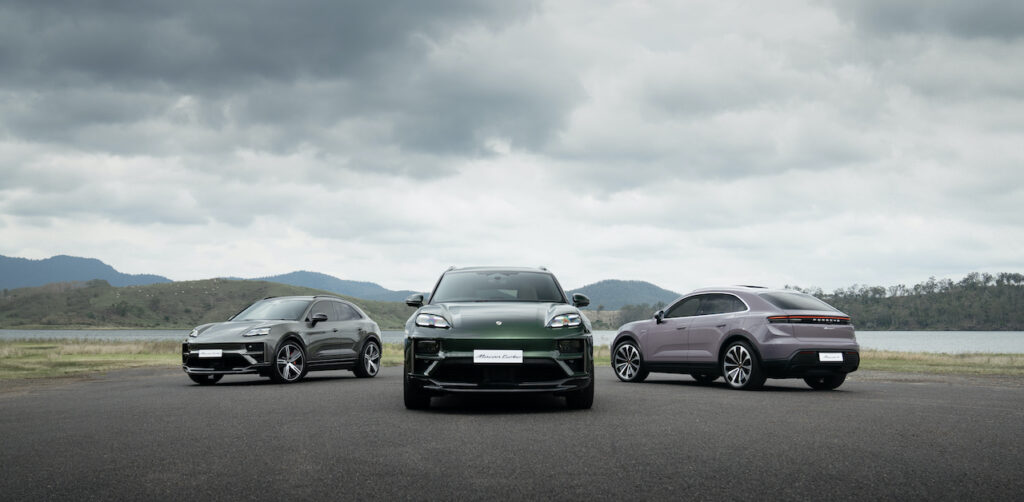
“You cannot compare the entry-level (Macan EV) with the entry combustion model,” said Ben Weinberger, Porsche spokesman for Macan and Cayenne. “In terms of technology and performance, that’s a whole different level,” he said in response to the higher pricing.
Indeed performance is one area the EV Macan shines; in Macan Turbo guise it brings new levels of performance to the mid-sized SUV category.
Muddying the waters were reports last month that Porsche CFO Lutz Meschke told investors combustion-engine Macans (and soon-to-be EV-only 718 Cayman/Boxster models) could potentially continue longer than previously considered, possibly with their EV-only platform modified to suit internal combustion powertrains.
Mr Weinberger questioned this when asked could it be the case. “In the Macan, at the moment, it’s not possible and not planned,” he said. “It’s not, let’s say, possible especially with this car. This was developed as an electric car from scratch.”
He suggested Porsche buyers intent on sticking with combustion could look to the larger Cayenne SUV, as part of the brand’s combustion, hybrid and pure electric model range.
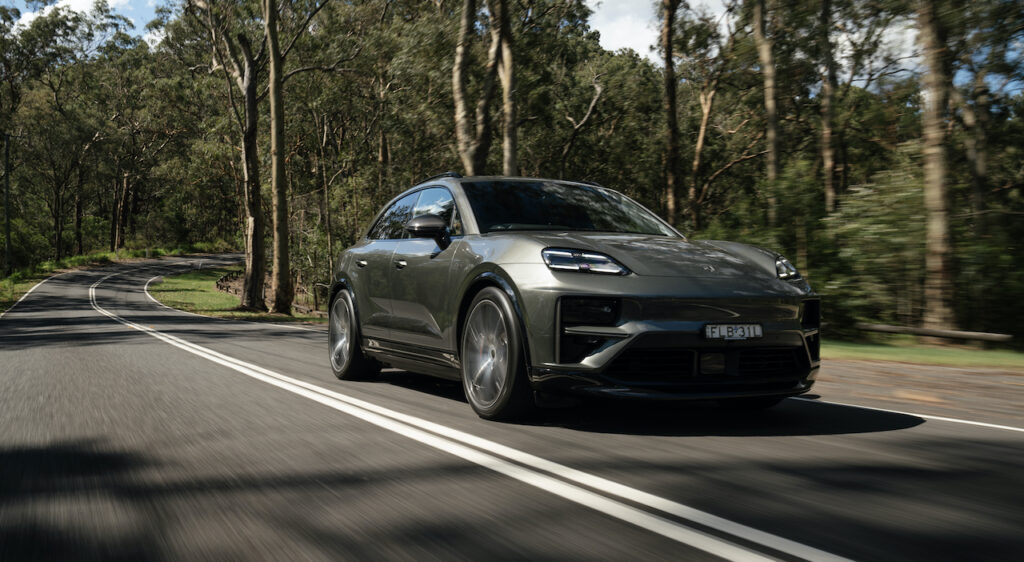
While Australian Macans with petrol engines will soon be confined to history, things are different overseas.
Asked when piston-powered Macans would stop rolling off the production line, Mr Weinberger stated: “We are kind of flexible depending on customer demands, but we do not comment on exact timings.
“We have the flexibility in our Porsche plant in Leipzig where both (Macan) models are built, and we can build both versions (EV and ICE).”
This hedging of bets appears an optimal approach to ensure Macan SUV sales numbers aren’t dented.
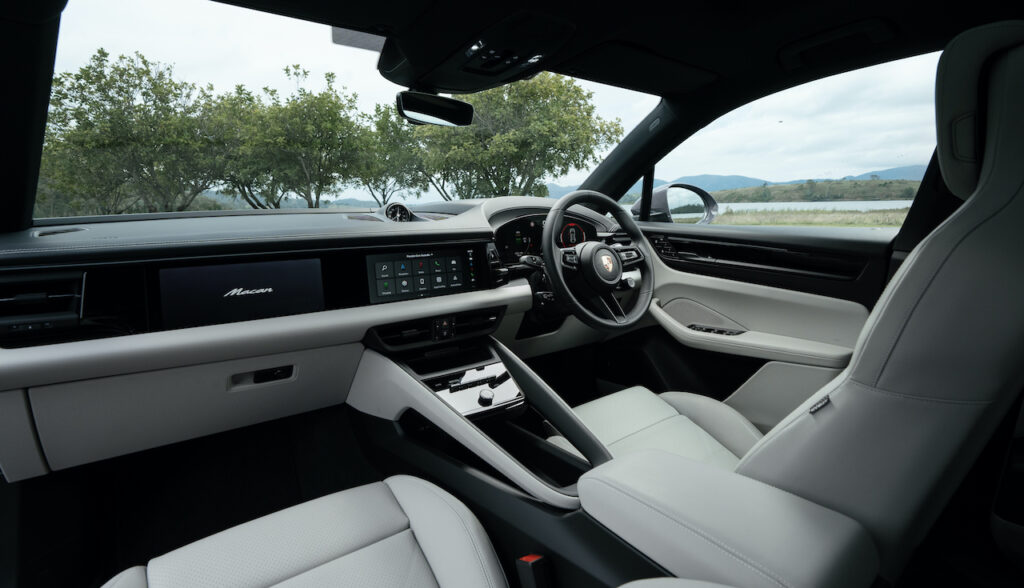
However, it’s not an option for Australia due to regulatory issues that mean the outgoing petrol models cannot continue locally.
But how long can the decade-old combustion Macan survive overseas? If market demand continues and EV sales prove more sluggish than anticipated, perhaps the production line could remain for years to come.
But for Australia, it’s now Macan EV or nothing.

